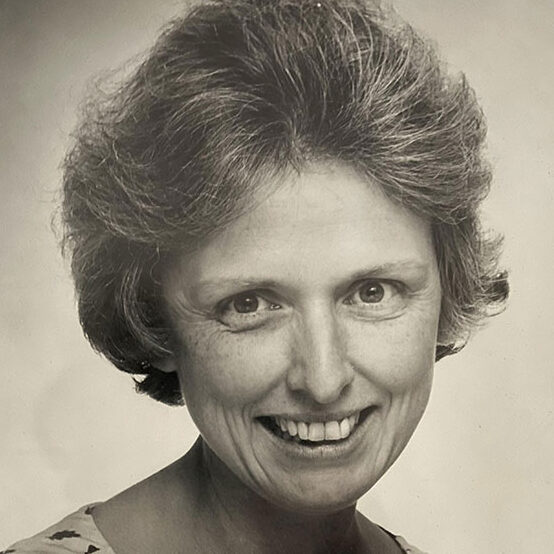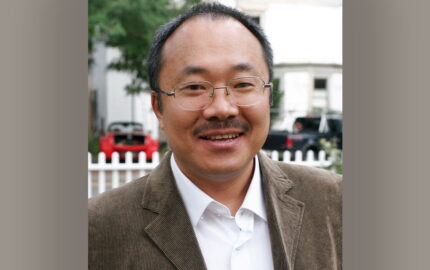Judith Havemann, NF ’80, who spent more than three decades as a reporter and editor at The Washington Post and worked in numerous roles including deputy National editor, chief newsroom recruiter and editor of the Food section, died on July 28, 2024, at her home in Washington, D.C. She was 80 years old. In this tribute, Havemann’s Nieman classmates Lynda McDonnell and Judy Stoia remember their friend’s life and work.
Judy Havemann (Nieman Class of 1980) was a tiny woman — 4’11” — who lived an outsized life. She remembered that her first job was on the family farm in Millersburg, Michigan, (population 210) milking cows. She was three years old. It was an isolating existence on a farm that required hard work and early on, Judy imagined something much different.
“She willed herself out” of the life she was born into, said her son Will Havemann.
Propelled by intelligence, remarkable energy and a probing curiosity, Judy graduated from Michigan State then moved through small-town newspapers to a reporting job at the Chicago Sun-Times. There she met and married fellow journalist Joel Havemann, who’d been raised in Manhattan and majored in math at Harvard.
Judy arrived at The Washington Post in l973 and began a quick ascent, becoming one of the Post’s first generations of notable women journalists. Her three-decade career at the paper began as Virginia editor, then Maryland editor on the Metro desk before her Nieman year in 1979. Judy returned to join the National desk, focusing on domestic policy and health and welfare, then moved up to deputy National editor.
Later she served as the newsroom’s recruiter and food editor.
Meanwhile, she and Joel had three children – Anne, then twins Will and Margaret who joined Theresa, the daughter from an earlier marriage. Judy was petite, practical and extroverted, Joel tall, shy and brainy. Together over 47 years of marriage, they managed careers, raised kids, welcomed visitors, hosted dinner parties and traveled widely, including three years working from Brussels.
“They were great,” Will said. “They loved each other. They had a ton of gratitude for each other…They were a great team.”
At age 46, Joel, by then working at the Los Angeles Times D.C. bureau, was diagnosed with Parkinson’s disease. Six years after his diagnosis, he wrote “A Life Shaken,” a book describing slowly losing control of his body to the disease. As his Parkinson’s progressed, Judy managed his team of full-time caregivers and organized regular dinners and visits from family and friends. Joel died in 2020 at 76.
Judy’s colleague Robert Jacob Samuelson, a former economics columnist for the Post, remembered her dedication to her profession: “Judy loved journalism, and she was a perfect fit. Her curiosity was boundless. There was no story too small or apparently too insignificant to escape her attention. She served as both the Maryland and Virginia editors – ‘the best we ever had,’ as one Post executive put it. Her capacity for work was prodigious. I never understood how she could be a fulltime Mom and a full-time journalist, but she did.”
After taking a buyout from the Post in 2006, Judy worked first as an editor for the Wilson Quarterly, then as public relations director for the National Endowment for the Humanities (NDH). Until Covid hit, she taught a beginning reporting class at the University of Maryland.
When her paid work ended, Judy’s public service work ramped up. She wrote postcards and knocked on doors for candidates, worked as an election judge and organized classes for the Osher Lifelong Learning Institute at American University. During the lockdown, she planned online activities to connect elderly people who were isolated in their homes. She took piano lessons, joined book groups, brought visiting scholars into her home and played with seven much-adored grandchildren.
“She hated being idle,” her son said. “She didn’t like feeling like she wasn’t productive.”
To be Judy’s friend was to bask in her hospitality, curiosity, storytelling and self-deprecating humor.
We became the friends of a lifetime – an enduring gift of our Nieman year. We told jokes, discussed national politics and traveled together. A trip to Monticello that traced Thomas Jefferson’s slave ownership and relationship with Sally Hemings underscored our shared interest in history, particularly America’s racial history.
With that in mind, Judy Stoia organized a trip to Mississippi, where she had worked for several years. In 2019, we traveled there along with my [Lynda’s] husband with the stipulation that he chauffeur us around the state. It was a four-day feast of food, talk and learning about James Meredith and Eudora Welty, William Faulkner and Ida B. Wells, along with grits, bourbon and pimento cheese.
Regular Zoom calls kept us connected through Covid and through Joel’s long battle with Parkinson’s.
We planned a trip to Austin, Texas, for January 2022. But in December 2021, Judy was diagnosed with incurable colorectal cancer. Through years of surgery, chemo and radiation, she showed her characteristic resolve and interest in the world. Remarkably, unless you knew Judy, she was uncomplaining.
At the end of one Zoom conversation this spring, she asked: “Did I tell you I’m going on a cruise?” No, she hadn’t.
Turns out she’d booked a solo cabin on a cruise to see the coasts of Ireland and Scotland.
“If I’m going to die, I might as well look at something besides my living room walls,” she said. On board, she befriended a pair of retired teachers.
We visited Judy in Washington a couple of times after her diagnosis. As always, the Havemanns’ rambling, light-filled home reflected the range and exuberance of her interests. Her piano in the parlor with Schubert open on the music rack. The collections of family pictures and grandchildren’s toys. The end tables piled with magazines, newspapers and books.
In the kitchen, there was a full refrigerator, a basket of produce from Judy’s backyard garden and shelves crammed with well-used cookbooks and sauté pans. A young Mexican woman was living upstairs.
A few weeks before Judy’s death, her children threw her an 80th birthday party at President Lincoln’s Cottage, the house near D.C.’s Soldier’s Home where Lincoln often retreated during the summers of his presidency to escape the city’s brutal heat.
Despite outside temperatures that topped 100, some 130 people crowded into those historic rooms to celebrate her birthday. There were neighbors, family and friends from her time at the Post, the NEH, the Wilson Quarterly, the Nieman program and many more. Of course, we were there.
When time came for Judy to speak, she was characteristically modest – thanking her kids and her guests and urging us to eat the appetizers in the next room.
Her memorial service will be at the National Press Club in Washington at 1:00 p.m. on September 21, 2024.
We will miss her greatly.
- Lynda McDonnell and Judy Stoia, Nieman Class of 1980



